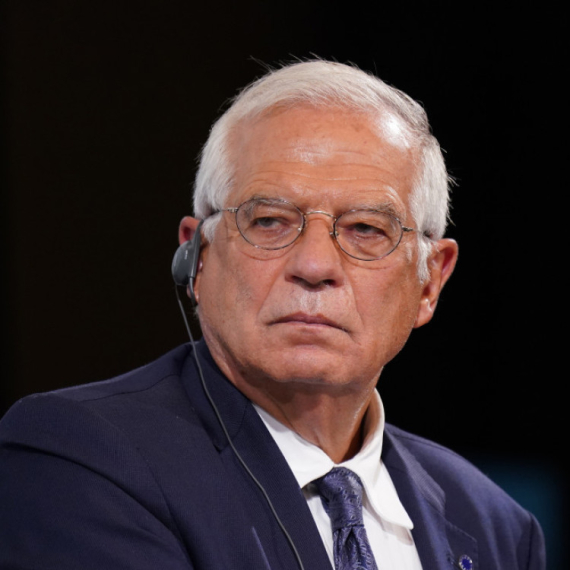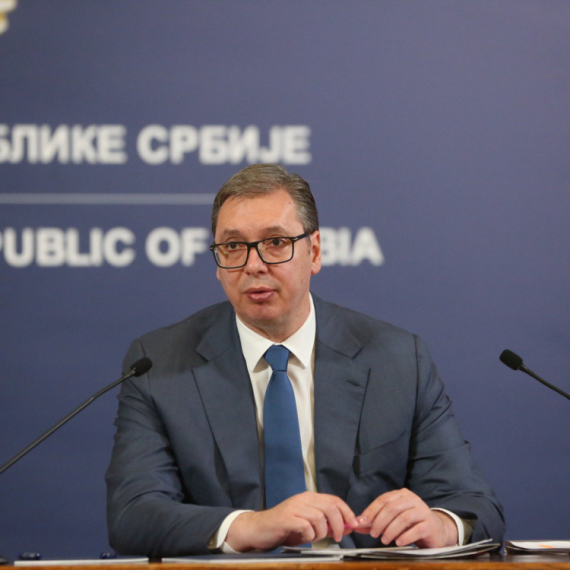“Serbia to maintain macroeconomic stability in 2012”
Serbian PM Mirko Cvetković’s economic advisor Jurij Bajec told Tanjug there was a realistic chance Serbia would maintain macroeconomic stability in 2012.
Wednesday, 04.01.2012.
11:02

Serbian PM Mirko Cvetkovic’s economic advisor Jurij Bajec told Tanjug there was a realistic chance Serbia would maintain macroeconomic stability in 2012. He believes that macroeconomic stability will be maintained regardless of the influence of the crisis coming from abroad, because the government has set aside around EUR 1.5bn in the budget for capital projects and EUR 600mn for subsidies and has also signed a precautionary arrangement with the International Monetary Fund (IMF). “Serbia to maintain macroeconomic stability in 2012” Bajec stressed it would be very good if Serbia got candidate status for EU membership this year, as this would draw foreign investors, noting the state needed to cut spending and carry out a reform of the public sector and the tax system. "These are definitely not all the necessary measures, because when you are a candidate for EU membership, then investors see a long-term perspective of where you are headed, and investments are long-term projects. An investor would be more likely to come with the candidacy as a sort of additional guarantee," he explained. Bajec said Serbia would once again be able to take advantage of significant funds, some of them non-repayable and some under very favorable terms, from the EU, the World, Bank, the European Bank for Reconstruction and Development, the European Investment Bank. "The situation is more that we are unable to use it all, than that the money is not available," the PM advisor said and noted it was very good the Serbian government had wrapped up all preparations for establishing a development bank, which should help companies get cheaper loans through a system of business banks. As far as monetary policy, Bajec expects the National Bank of Serbia (NBS) will be able to keep inflation at a considerably lower level than last year, along with the reference interest rate, which means business banks will be able to cut their interest rates which in turn means cheaper business and retail loans. Tanjug
“Serbia to maintain macroeconomic stability in 2012”
Bajec stressed it would be very good if Serbia got candidate status for EU membership this year, as this would draw foreign investors, noting the state needed to cut spending and carry out a reform of the public sector and the tax system."These are definitely not all the necessary measures, because when you are a candidate for EU membership, then investors see a long-term perspective of where you are headed, and investments are long-term projects. An investor would be more likely to come with the candidacy as a sort of additional guarantee," he explained.
Bajec said Serbia would once again be able to take advantage of significant funds, some of them non-repayable and some under very favorable terms, from the EU, the World, Bank, the European Bank for Reconstruction and Development, the European Investment Bank.
"The situation is more that we are unable to use it all, than that the money is not available," the PM advisor said and noted it was very good the Serbian government had wrapped up all preparations for establishing a development bank, which should help companies get cheaper loans through a system of business banks.
As far as monetary policy, Bajec expects the National Bank of Serbia (NBS) will be able to keep inflation at a considerably lower level than last year, along with the reference interest rate, which means business banks will be able to cut their interest rates which in turn means cheaper business and retail loans.



















































Komentari 0